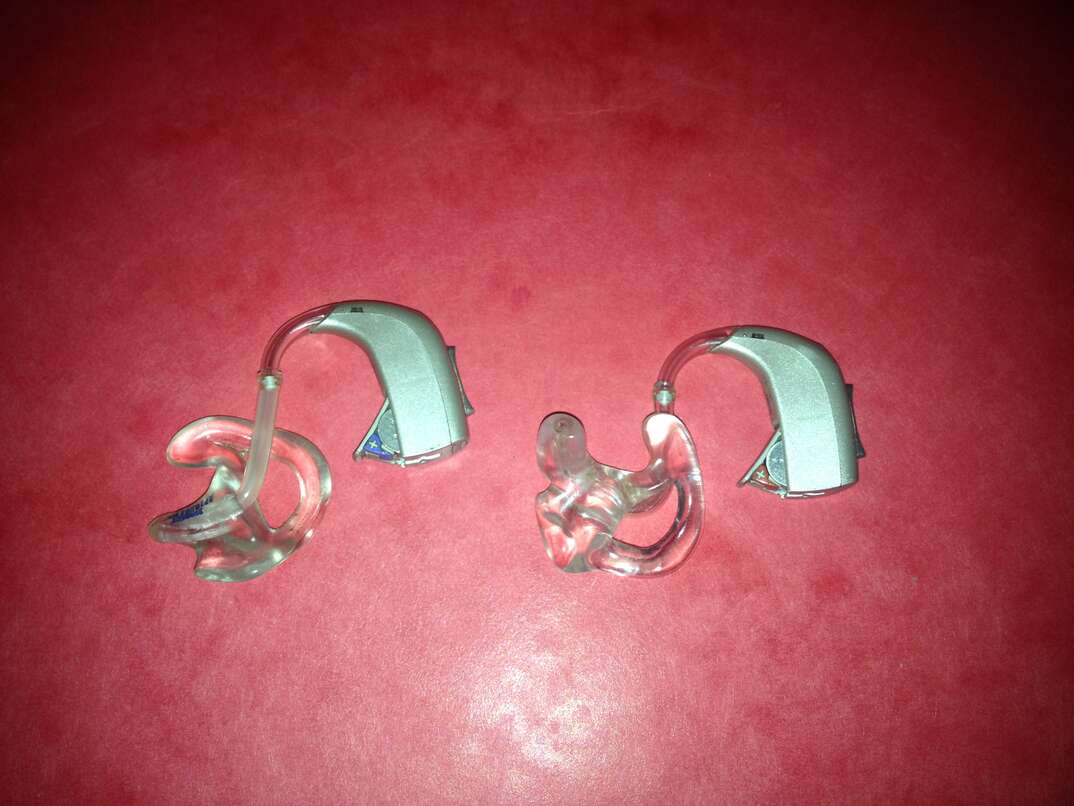- AppliancesElectriciansHVACLandscapingLocksmithPest ControlPlumbingRenovationRoofingT V RepairAll Home Improvement
- Car AccidentClass ActionCorporate LawCriminal DefenseDivorce LawEmployment LawFamily LawFinancial LawLegal AidMedical Injury LawyersMedical MalpracticeReal Estate LawWater Fire RestorationAll Legal
- InvestmentRetirementAll Finance
- Animal InsuranceAutoGeneral InsuranceHealth PolicyHome RentersAll Insurance
- DentalHealth SpecialistsAll Medical
- Animal CareVeterinaryAll Pets
- Auto GlassTowingAll Automotive
Does Medicare Cover Hearing Aids?

Hearing aids are pricey, but they're essential for many people. For many, they provide freedom and the ability to communicate.
If you’re looking at the price tag, it's natural to want to turn to your healthcare coverage to help with the costs. Medicare is the primary coverage for older adults — but it doesn’t always cover hearing aids. This is what you need to know.
Medicare Parts A and B — also called Original Medicare — don't cover your costs for hearing aids or any exams you need to get your hearing aids. You can get a hearing exam covered if your doctor gives you a referral and the exam is for diagnostic purposes.
However, you'll never get coverage for the actual hearing aids. That's because, in 1965, when Medicare was passed into law, hearing aids weren't very expensive. Shorter life expectancy at that time also meant many people didn't live long enough to need hearing aids.
However, Medicare Part C — also known as Medicare Advantage — often covers the cost of hearing aids. Part C is a private, optional policy that supplements your Part A and B coverage. Since it's sold by private companies, the coverage for hearing aids varies. If you have Medicare Advantage, review the coverage to see if it pays for hearing aids, or call the company to find out about your coverage.
Does Medicaid Cover Hearing Aids?
Medicaid sometimes covers the cost of hearing aids. Medicaid is a federal and state program that's run by individual states, which means the coverage and rules vary based on where you live. Many states offer coverage for hearing aids and hearing tests, but some don't. The states that cover hearing aids might have restrictions. For example, in some states, Medicaid covers hearing aids if they're prescribed by a healthcare professional or are deemed medically necessary.
If you need hearing aids, you may be wondering how much you’re looking at in terms of price. You can expect to pay an average of $1,000 to $3,500 per hearing aid. The cost varies depending on several factors, including the type of hearing aid you get and any additional features, such as wireless connectivity or noise-reduction technology.
Why do hearing aids cost so much? These hearing devices are highly advanced and include a lot of technology to improve your hearing. A lot of research and development goes into constantly improving hearing aids, and that factors into the price. They're customized for you, and a specialist will likely spend several hours with you for the exam, fitting and other services to get your hearing aids working. They might also work with you later if you have issues with your hearing aids.
How to Save Money on the Hearing Aids Cost With Medicare
A Medicare Part C plan can help you get coverage for hearing aids. Choose your Part C plan carefully to ensure it offers good coverage for hearing aids. Review the coverage limitations and amounts to get an idea of your out-of-pocket expenses for the hearing aids.
How Else Can You Get Help With the Cost of Hearing Aids?
Although you can't get coverage for the hearing aids cost with Medicare Parts A and B, you might be able to get financial assistance from other sources. The Lions Club offers a recycling program for eyeglasses and hearing aids. You may also be able to get help from the Hearing Aid Project or a local charity. The Department of Veterans Affairs typically covers all associated hearing aid costs for U.S. military veterans.
Elocal Editorial Content is for educational and entertainment purposes only. Editorial Content should not be used as a substitute for advice from a licensed professional in your state reviewing your issue. The opinions, beliefs and viewpoints expressed by the eLocal Editorial Team and other third-party content providers do not necessarily reflect the opinions, beliefs and viewpoints of eLocal or its affiliate companies. Use of eLocal Editorial Content is subject to the
Website Terms and Conditions.The eLocal Editorial Team operates independently of eLocal USA's marketing and sales decisions.



